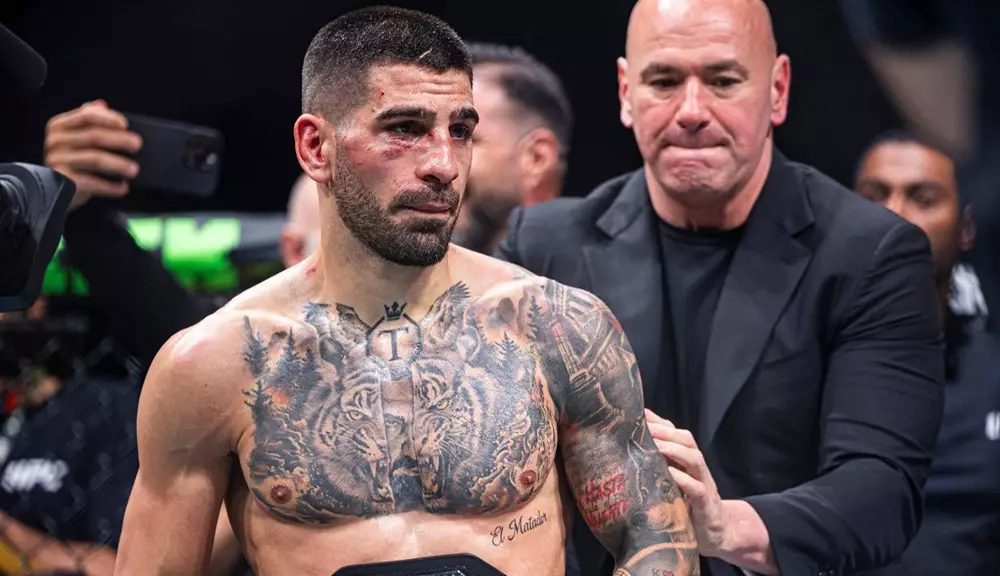Ilia Topuria has burst onto the UFC scene with impressive momentum. With a pristine record of 16 wins and no losses, his ascent reached a new peak when he dethroned Alexander Volkanovski at UFC 298, becoming the featherweight champion. Following that pivotal victory, Topuria continued to showcase his prowess by defending his title against Max Holloway at UFC 308, delivering a spectacular knockout that solidified his status among the elite fighters in the division. Despite these accomplishments, Paddy Pimblett, a fellow competitor and one of the UFC’s most popular figures, has openly questioned Topuria’s star power and readiness for a matchup against Islam Makhachev, the lightweight champion.
Pimblett’s argument hinges on the idea that star power and marketability are crucial for fighters seeking to challenge for titles in different weight classes. In his appearance on the “Blood Red” podcast, Pimblett emphasized that typically, fighters need more than one title defense to merit a shot at another champion. He stated, “He’s only defended the belt once… He’s not that big of a star to jump.” This skepticism highlights an intriguing aspect of the sport—champions often require a combination of skill, charisma, and marketability to be taken seriously across divisions. While Topuria’s skill set is undeniable, Pimblett’s commentary suggests that his fame hasn’t yet reached a level comparable to previous crossover stars like Conor McGregor.
Pimblett and Topuria’s rivalry is also fueled by personal animosity, stemming from an altercation in London back in March 2022. Their friction came to a head during the UFC 282 pre-fight press conference, where tensions necessitated intervention from security. As both fighters eye potential matchups, including Pimblett’s rumored return at UFC 314 against Michael Chandler, the idea of a face-off between Pimblett and Topuria becomes increasingly enticing. Such a clash could not only determine supremacy within the featherweight division but also serve as a platform to establish the victor’s marketability.
Makhachev’s Reluctance and the Lightweight Landscape
Meanwhile, Makhachev’s ambitions to expand his legacy as a dual champion further complicate the narrative. Fresh off setting a new lightweight record with four title defenses, Makhachev is not particularly interested in engaging with another featherweight like Topuria, especially given his own goals and the competitive landscape of the lightweight division. While Topuria may aspire for a lightweight shot, he faces an uphill battle not just against Makhachev but also in proving his worthiness as a challenger.
The Bottom Line: A Fluid Landscape
The dynamics within the UFC are undeniably fluid. Fighters like Topuria and Pimblett represent the evolving face of the sport where skills must intertwine with marketability to reach the highest echelons of success. While Topuria continues to grow as a champion, Pimblett’s critiques raise genuine questions about the importance of star power in determining the next title bout. The unfolding rivalry between them provides an exciting subplot as fans and analysts alike keenly observe how these narratives develop in the highly competitive world of mixed martial arts.

